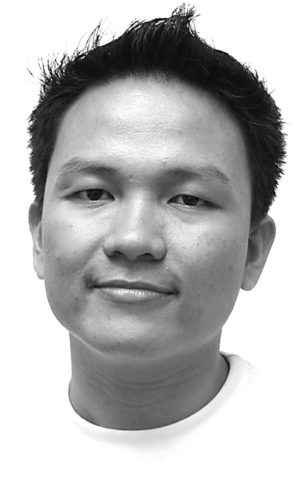
BAGUIA
The sun was out when the 26th Cebu Press Freedom Week celebration started Sunday.
Cebu Auxiliary Bishop Dennis Villarojo concelebrated the Holy Mass to open the weeklong affair. Concelebrating were Msgr. Joseph Tan and Fr. Felmar Castrodes Fiel.
The bishop delivered a most challenging homily to jibe with the annual event in which members of Cebu’s media organizations come together for fellowship and to reflect on the freedom of the press. Media practitioners, aspiring media practitioners, media educators and critics, and audiences may visit the Cebu Daily News website to read the transcript of the homily. For those who assisted at Mass, there was enough from the homily to chew on without reviewing its transcript.
For the powerful, Bishop Dennis said, truth is what one says it is. The powerful person is not concerned with the verity of his pronouncements. They are true because they come from him, because he pronounced them.
To my mind, this alone should give us a healthy dose of skepticism of the words of those in power. We know there are standards of truth against which the truthfulness of anyone’s word may be measured. When two or more conflicting claims are made, we should use reason to interrogate them until we come to the bottom of things.
On Sunday, President Rodrigo Duterte claimed that a church had collapsed amid a landslide in the wake of typhoon Ompong in Benguet province, killing 43 people. The President then went on a tirade and blamed the priest for the structure’s fall. He said it would not have caved in had the priest (whom he cursed), been replaced.
The fallout to and rage over this statement, which I will explain, came swiftly. The presidential mouthpiece, Herminio Harry Roque Jr. issued a rapid response urging the upset public not to take the President seriously; not to take his utterances literally.
The reason behind the citizen backlash was that the President’s claims were false and the act of disinformation was perpetrated when the immediate, post-typhoon context most assuredly did not warrant comedy but sobriety and compassion for survivors.
How was the President in error?
He said a church collapsed. But no church did. What fell was a chapel that used to be a mining bunkhouse in which people had taken refuge during the storm.
He said the priest should be blamed for the tragedy. But no priest (at least in the ministerial Catholic sense), could have been assigned to the worship space. It was being used by the faithful of the United Church of Christ in the Philippines whose congregation leaders usually go by the title pastor rather than priest.
Was the president blaming every worshiper in the chapel, probably more aware of their participation in the priesthood of Jesus Christ than their Catholic counterparts for the destruction?
It looks like the President, in his excitement to slam the Catholic Church anew, ended up insulting Protestants, too, at a time when he should have led the country in mourning those who perished and in forgetting political divisions, if only momentarily, to focus on the task of rescuing and rebuilding lives.
Roque said the President should not have been taken seriously. But joking in the middle of a disaster, in the face of deaths is seriously offensive.
“This is the essence of press freedom,” Bishop Dennis said in his Sunday homily: “To do what is right, even when everybody thinks it’s wrong. To tell the truth, even if no one believes it. To say it properly and respectfully, even if it may sound banal and trite. To keep the truth in memory, even if every one has forgotten it. To hold all men and women accountable for their actions, and yes, even if they are men and women of the Catholic Church. No one, after all, is exempt from the glare of truth. Like Pontius Pilate you must ask the question, ‘What is truth?’ But unlike Pilate, you, men and women in media, cannot just wash it off your hands.”
* * *
I am sharing this announcement from Prof. Marie Rose Arong of the University of the Philippines Cebu:
The College of Communication, Art, and Design – Communication and Creative Writing Programs will have a Martial Law commemorative event entitled, “1081: Interactive, Retrospective” on today, Sept. 19, 2018. The event is part of the ongoing Cebu Press Freedom Week.
The Communication faculty echoes the call of our UP Diliman colleagues to resist the “historical revisionism and political whitewashing of the Marcoses.”
The “1081: Interactive, Retrospective” is our modest contribution to thwart any attempts to erase from our history the atrocities committed during Martial Law. We hope to take the lead in preserving the memory of not only our “UP faculty, students, and alumni” who “fought and died” during Martial Law but also the Cebuano victims, by providing the much-needed space for our students and guests to hear their stories, to remember their suffering, and to never forget their sacrifices.
The “1081: Interactive, Retrospective” is a daylong event.
Disclaimer: The comments uploaded on this site do not necessarily represent or reflect the views of management and owner of Cebudailynews. We reserve the right to exclude comments that we deem to be inconsistent with our editorial standards.
